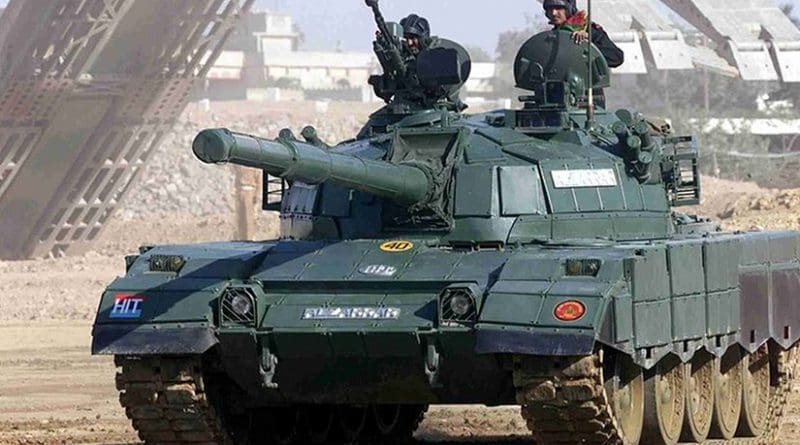Pakistani Soldiers To Receive Russian Military Training Under New Deal
By RFE RL
By Pamir Sahill
(RFE/RL) — Pakistan and Russia have reached a military cooperation deal that includes sending Pakistani soldiers to Russia for training, the countries’ defense ministries have announced.
The agreement was reached during Russian Deputy Defense Minister Aleksandr Fomin’s two-day visit to Pakistan this week, and was discussed during a meeting of Russia’s and Pakistan’s top military brass in Moscow on August 9.
At the meeting between the chief of the Russian Armed Forces’ General Staff, Army General Valery Gerasimov, and Pakistan’s General Zubair Hayat, the military leaders “confirmed a bid to deepen the dialogue and develop contacts in the defense sector,” the Russian Defense Ministry said.
The ministry said a key focus of the agreement is for Pakistani servicemen to receive training at military schools and institutions of higher education in Russia.
The agreement comes at a time of tension between Pakistan and its traditional military ally, the United States, which recently suspended security aid to Pakistan, charging that it has not done enough to help defeat militants that have been waging a long war against the government in neighboring Afghanistan.
It also comes after Washington this year imposed sanctions on Russia’s defense and intelligence sectors that are aimed at curbing its military’s exports and influence around the world.
Disinformation Warfare
While the agreement for both Russia and Pakistan may serve to show they are distancing themselves from the United States and its demands, Amil Khan, a South Asia researcher at Chatham House, a London think-tank, said it is “more about the signaling and political messaging than it is about actual military reality.”
“Pakistani equipment, Pakistani doctrine, and Pakistani resupply, all of that stuff is on a Western model,” he said. Because of Islamabad’s past alliances with the United States and Britain, it cannot easily or quickly switch to relying on Russia’s military for its needs, he said.
“The big equipment needs it has [are] all American, with British legacy. So, it’s not actually feasible to take a moment of time and say that right now it will be Russia,” Khan said.
Pakistan, besides acquiring military expertise from Russia through the training program, may also be seeking to learn more about Russia’s disinformation warfare tactics, which Khan said have gained attention and respect in the Middle East and South Asia.
“A lot of countries in the region…are very impressed by the Russian ability to wage international competition on a low budget, essentially using disinformation,” he said.
For Russia, the cooperation deal enables it to show that it is still expanding its military influence and presence around the world despite the U.S. sanctions, he said.
“The Russian government wants to say to who it sees as its competitors — and first among those is the U.S. — that we are on a level playing field with you on the global stage,” he said.
After losing influence in some parts of the world in recent years, “it is very important for the Russian system to want to be able to say to its own people: look, we also take back influence where Western powers are stepping away or are being seen to be less effective.”

